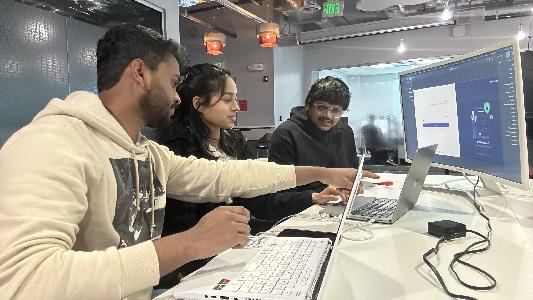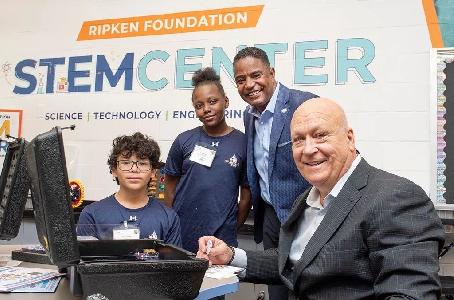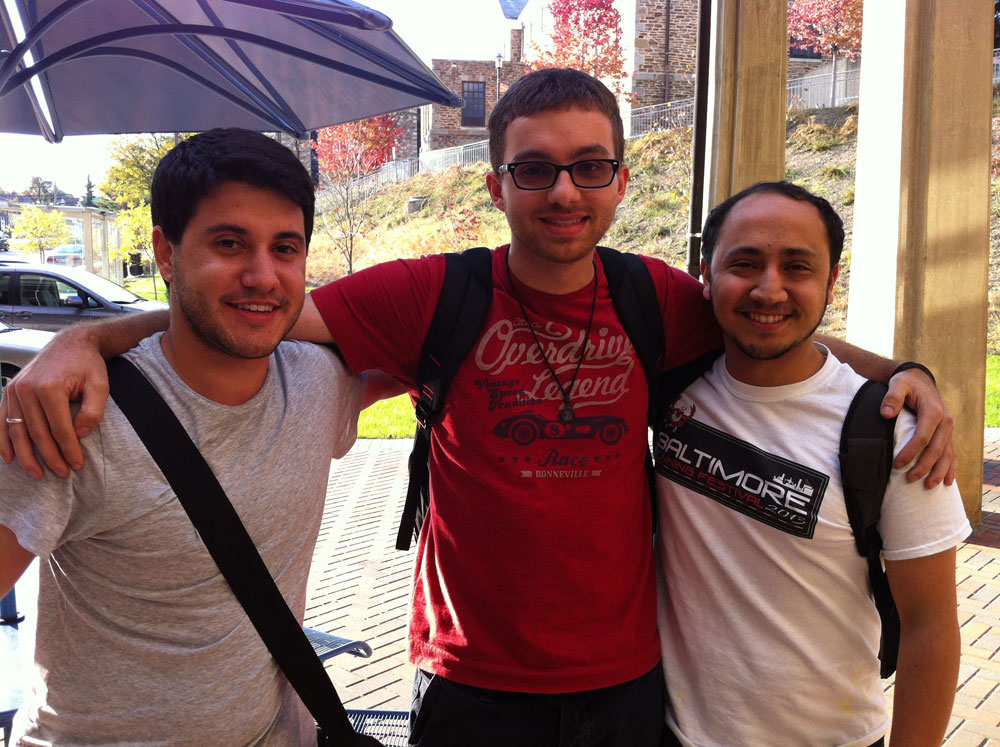Three Brazilian exchange students to Morgan State University took home first-place honors — and $500 — at this weekend’s Morgan State 24-hour-long hackathon.
Organized in part by the three cofounders of startup Given.to, all of whom are Morgan State graduates, it was the second Baltimore city hackathon in the last year co-sponsored by the national Black Founders organization, whose mission is “to increase the number of black entrepreneurs in tech events,” according to Hadiyah Mujhid, a Black Founders cofounder. In April, Morgan State was one of three stops in Black Founders’ inaugural HBCUHacks Tour, in addition to Morehouse College and Howard University.
About 20 students split among four teams participated in the weekend’s hackathon, which wasn’t limited to Morgan State undergrads. Students from the Community College of Baltimore County and Prince George’s Community College also participated. Some students, said Given.to’s Sam Henry, stayed awake the whole night working on hacks.
The winning team, pictured above, was RFID Settings.
- It’s a hardware and software hack for Android phones equipped with NFC (near-field communcation) readers. RFID Settings was the Android app they programmed.
- Using RFID (radio-frequency identification) cards that they programmed, the three hackers were able to change the settings of an Android phone without pushing any buttons. One RFID card turned off the WiFi and Bluetooth on the phone. Another, the phone’s 4G.
- With not yet programmed RFID cards, and working through the app, Android phone users would be able to make individual RFID cards correspond to the phone settings they wanted. It probably shaves just a few seconds from a person’s pushing of mobile icons, but it’s a nifty trick. One RFID card placed at the office could, just by touching the phone to the card, turn off the phone’s volume and WiFi.
- For taking first place they received a $500 cash prize, as well as an in-person meeting with Matt Gillis, executive vice president of engineering at Canton-based global mobile advertising firm Millennial Media.
The students, Pablo Silva, John Rinehart and Danilo Rosa, are studying at Morgan State through May 2014. Next summer each will take an internship in their respective fields of study — information systems for Silva and Rinehart, computer engineering for Rosa — before returning to Brazil in late August.
The other three teams formed at the Morgan State hackathon:
- In second place, with a $250 cash prize, was Cognition, a five-person team that produced a platform for bundled games. A “core” offering, they said, would be 10 games for $3. The one game they finished, “Bloodstream,” makes players pop (by tapping) and slice (by swiping) infectious blobs swimming among white and red blood cells at varying speeds.
- In third place, with a $100 cash prize, was Wear This, the one team where women hackers were represented, with two. It’s a “weather, wind, humidity” Android app that tells the user what clothes to wear depending on the conditions outside. Think meteorologist’s Justin Berk’s KidWeather app, but for more people than just kids.
- The final team, which is receiving a startup book purchased by Given.to, was Deck of Cards. This three-person team had only one coder, so the project was unfinished, but the idea was to have one app that allowed users to play multiple card games, as well as create their own card games.
Before you go...
Please consider supporting Technical.ly to keep our independent journalism strong. Unlike most business-focused media outlets, we don’t have a paywall. Instead, we count on your personal and organizational support.
3 ways to support our work:- Contribute to the Journalism Fund. Charitable giving ensures our information remains free and accessible for residents to discover workforce programs and entrepreneurship pathways. This includes philanthropic grants and individual tax-deductible donations from readers like you.
- Use our Preferred Partners. Our directory of vetted providers offers high-quality recommendations for services our readers need, and each referral supports our journalism.
- Use our services. If you need entrepreneurs and tech leaders to buy your services, are seeking technologists to hire or want more professionals to know about your ecosystem, Technical.ly has the biggest and most engaged audience in the mid-Atlantic. We help companies tell their stories and answer big questions to meet and serve our community.
Join our growing Slack community
Join 5,000 tech professionals and entrepreneurs in our community Slack today!

Major state funding boost means more Maryland college students can get tech internships

Cal Ripken Jr. essay: The MLB legend explains his drive to build STEM centers in schools across the nation

The end of software as technology




